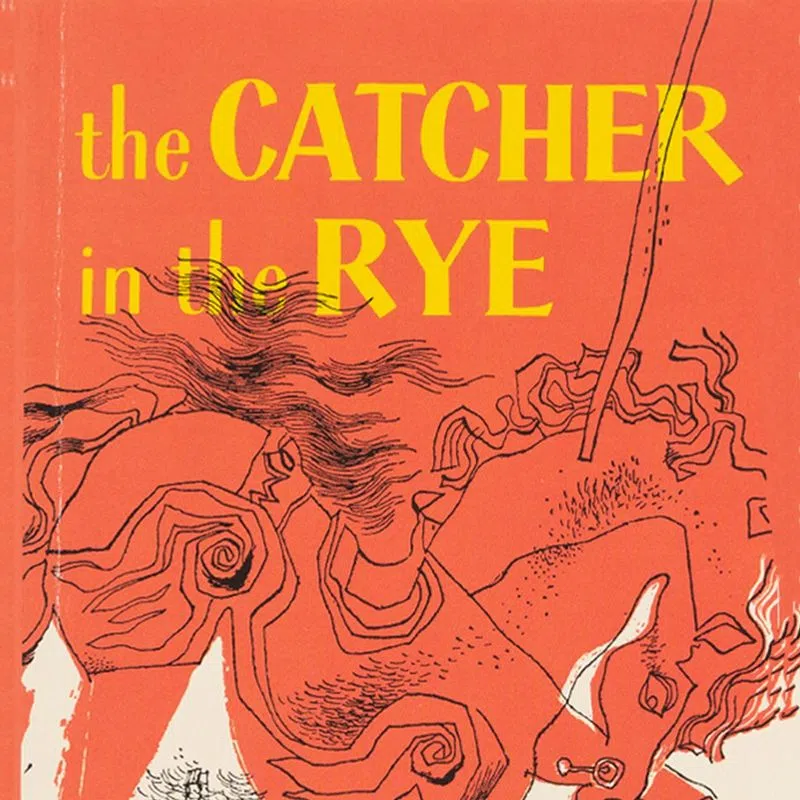In 1951, one J. D. Salinger authored the controversial yet the most renowned novel of its time, The Catcher in the Rye. Although the book was initially meant for an adult audience, it would later be learned that the adolescents found more interest in the text than the elderly did (Takeuchi 167). Holden Caulfield is the protagonist in the book, and through his character, Salinger`s audience gets to explore the themes of identity, loss, innocence, connection, and belonging. On the one hand, readers can content that Holden is not a sociopath, nevertheless, on the other hand, it presents to the audience that Holden must be suffering from psychologically related problems; mental illness and depression.
The character, behavior and morals of Holden reflect an individual who suffers from psychologically linked disorders thought the text, Catcher in the Rye. Even though the signs and symptoms of these clinical conditions overlap, Holden is one character who gives intriguing medical manifestations, whose symptoms could lead to a very different diagnosis from the most probable. When somebody is stressed and traumatized, they are in most cases diagnosed of Post-Traumatic Stress Disorder (PTSD), bipolar, and depression (Levin 158). Based on the presentations of Holden, mental sickness and depression is the most likely diagnosis, in alignment with other symptomatic psychological maladies.
In the book, Holden has encountered two incidents that destabilized his psychological integrity. Firstly, the demise of Allie, Holden`s younger brother, and secondly, when the protagonist witnessed the catastrophic suicide. Holden, furthermore, feels anxious because he is not at peace with his parents because he is an academic dwarf. According to data by the Center for Disease Control, trauma, shock, stress, and anxiety are the primary causes of PTSD (Levin 161).
One of the symptoms that support the diagnosis of PTSD for Holden from the book is that he keeps dwelling his thoughts on flashback. Holden recalls of his memories with Allie, his deceased brother, as fulfilling and admirable. When he feels stressed in the city, he hopes that Allie would protect him if he were alive (Takeuchi 163). An expansive part of the book is about the childhood memories of Holden, which ratifies the concern of PTSD due to his persistence to living in the past.
The second symptom Holden presents with is detachment from social life. He walks in solitude. Even at school, he despises his roommates Stradlater and Ackley. This makes him perform poorly academically (Levin 160). The concept of psychological derangement is better manifested when he writes an arrogant letter to his history teacher, Mr. Spencer. Holden does not appreciate change, and he has refused to mature up. He gets irresponsible at school, messes up with friends, parents, and the whole society. The third and last symptom to confirm Holden`s suffering from PTSD is his agitation. At all times and everywhere, Holden feels bad about somebody or something. For instance, his date with Sally Hayes goes sour after his misbehaving.
The second probable psychological diagnosis of Holden is depression. This medical condition makes a patient to lose interest in life. Teenagers could be depressed because of family wrangles, change from childhood to adulthood and hormonal imbalances, as well as the accompanying responsibilities (Levin 159). Similarly, Holden has problems at school, his parents have no pride in him, his most cherished friend and brother Allie is dead, and responsibilities are out of proportion (Takeuchi 165). Holden is depressed. The symptoms and clinical signs Holden present within the text, Catcher in the Rye, are many. For example, he is extremely defiant as seen in his essay, and his behavior is uncouth. He is always moody and had no appetite to eat in a healthy manner. He suffers from insomnia; he delights in inviting whores in his room, and he is cynical and hardly finds happiness in anything. Finally, Holden has suicidal thoughts, and he keeps meditating about his impending death.

